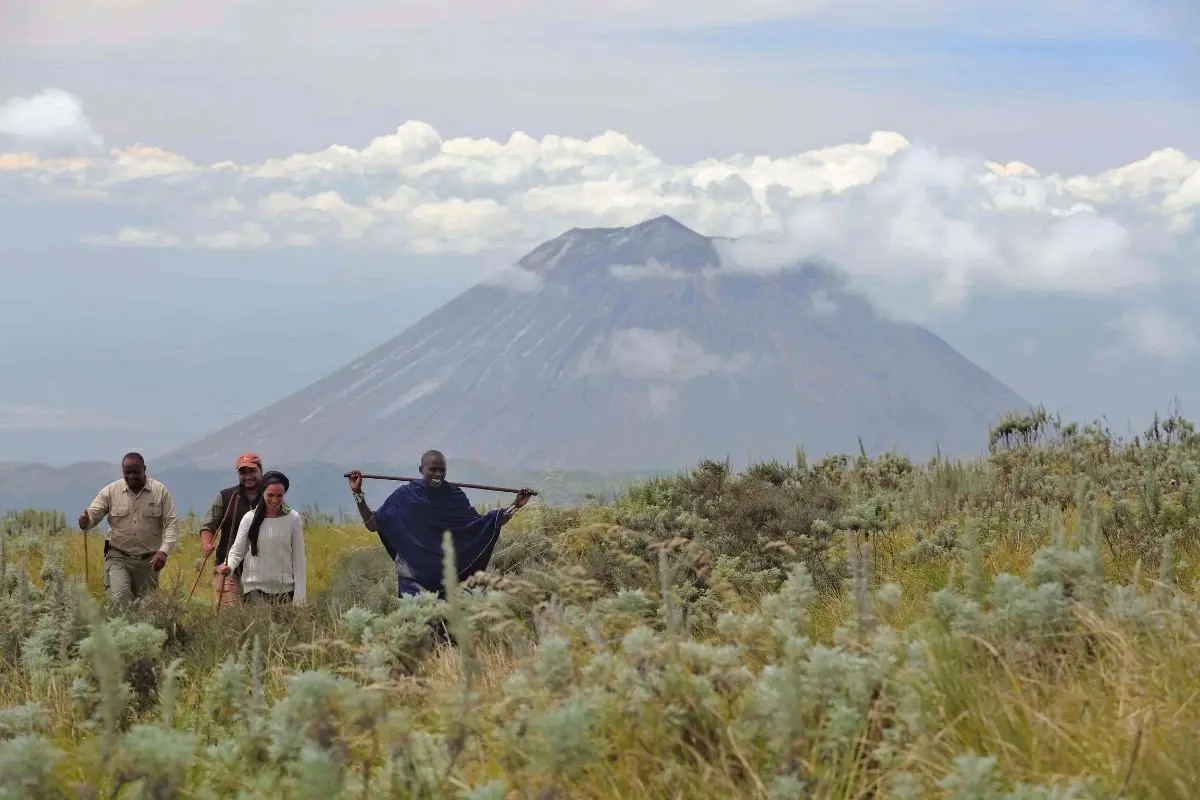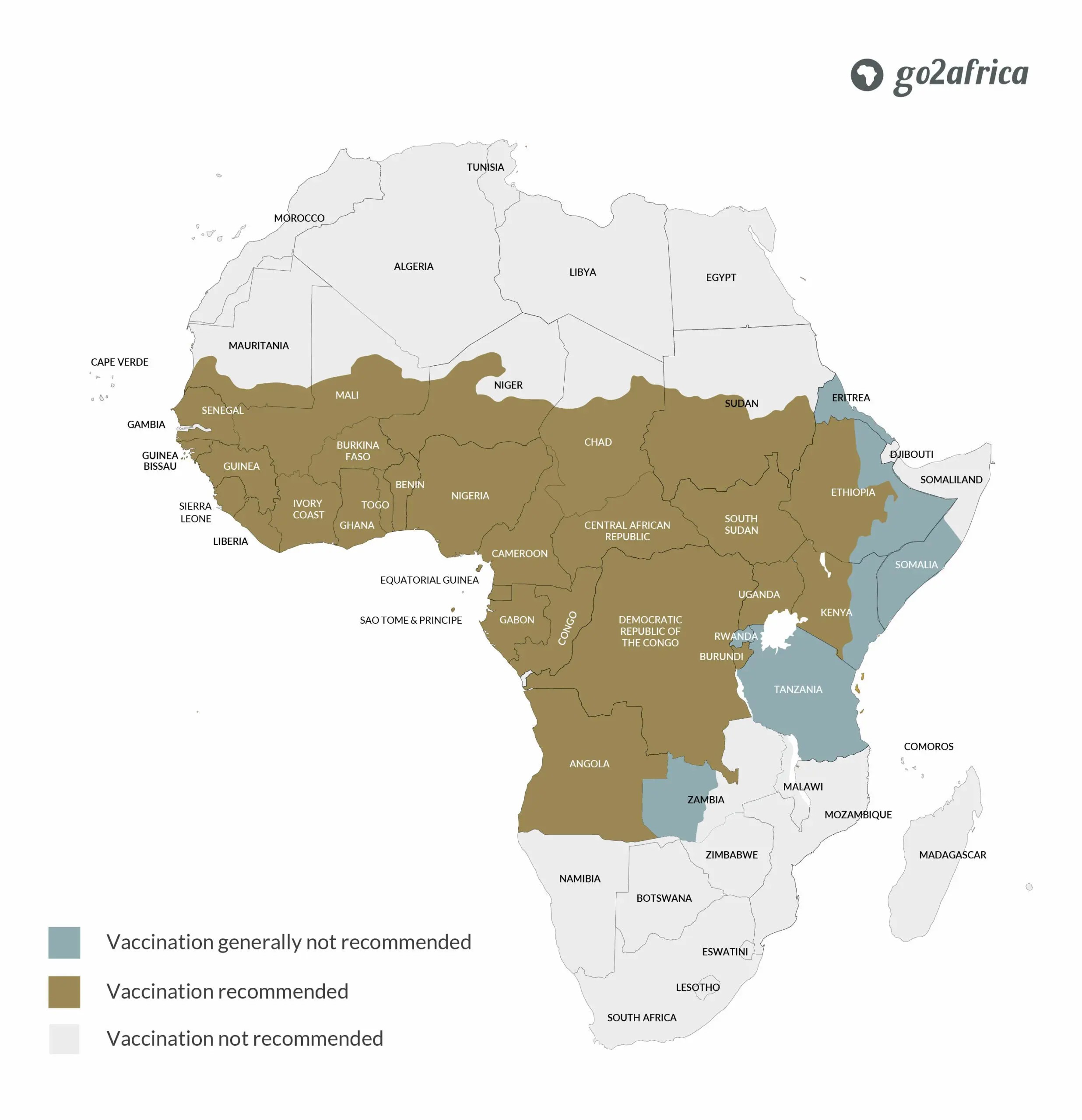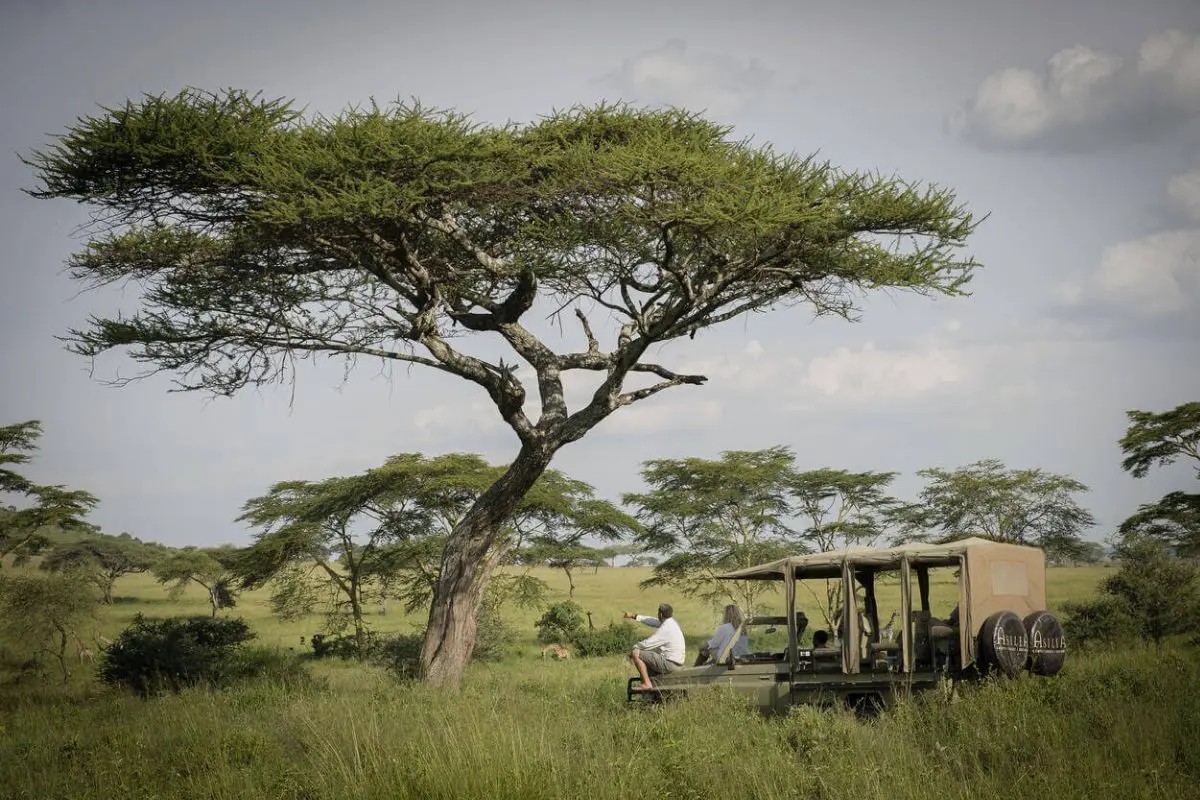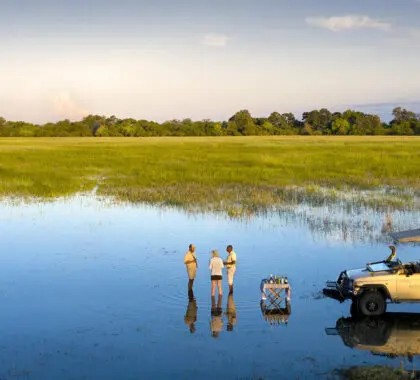Embarking on an African adventure is an exciting prospect, and TRAVELS.EDU.VN is here to ensure your journey is not only thrilling but also safe and well-prepared. Understanding the vaccination requirements is crucial for a worry-free trip. Let’s explore the necessary vaccinations and health precautions to ensure your African experience is memorable for all the right reasons.
1. Pre-Travel Consultation with Your Doctor
Prioritize a consultation with your healthcare provider or a travel clinic well in advance of your African safari. This visit allows for a thorough discussion of potential health concerns and necessary precautions. It’s recommended to schedule this appointment four to six weeks before your departure to ensure ample time for vaccinations and to address any underlying health issues.
Your doctor will assess your medical history, travel itinerary, and current health status to provide personalized recommendations. This may include updating routine vaccinations, advising on malaria prevention, and discussing other potential health risks associated with your destination. A comprehensive pre-travel consultation is a proactive step towards a healthy and enjoyable trip.
2. Essential Routine Vaccinations for Africa
Maintaining up-to-date routine vaccinations is crucial for protecting yourself from diseases that may be more prevalent in Africa. These vaccinations help prevent common illnesses and ensure you are in optimal health before embarking on your journey.
- Flu (Influenza): Annual flu shots are essential, especially if traveling during flu season.
- MMR (Measles, Mumps, and Rubella): Ensure your MMR vaccination is current to prevent these highly contagious diseases.
- Polio: Polio vaccinations are crucial for preventing this debilitating disease.
- Hepatitis A & B: Hepatitis A is spread through contaminated food and water, while Hepatitis B is transmitted through bodily fluids.
- DPT (Diphtheria, Pertussis, and Tetanus): This combination vaccine protects against serious bacterial infections.
 Vaccination Schedule for Travelers to Africa
Vaccination Schedule for Travelers to Africa
The diverse terrains of Africa necessitate careful health planning. Ensure your vaccinations are up-to-date for a worry-free adventure.
3. Yellow Fever Vaccination: Requirements and Recommendations
Yellow fever is a viral disease transmitted by mosquitoes in specific regions of Africa and South America. The yellow fever vaccine is highly effective in preventing this disease and is often required for entry into certain African countries.
- Mandatory Vaccination: Some countries require proof of yellow fever vaccination for all travelers, regardless of origin.
- Conditional Vaccination: Other countries require vaccination only if you have recently traveled to a country with a risk of yellow fever transmission.
It is essential to receive the yellow fever vaccination at least 10 days before entering a risk area to allow your body to develop immunity. After vaccination, you will receive an International Certificate of Vaccination or Prophylaxis (ICVP) as proof of immunization. Only authorized travel clinics can issue this certificate.
The following table provides a summary of yellow fever vaccination requirements for various African countries:
| Vaccination is an entry requirement | Vaccination required if you’ve been to a country in the yellow fever belt |
|---|---|
| Republic of the Congo | Botswana |
| Uganda | Madagascar |
| Kenya | Rwanda |
| Tanzania | |
| Namibia | |
| Seychelles | |
| South Africa | |
| Mozambique | |
| Zimbabwe | |
| Zambia |
While we strive to keep this information current, always verify requirements with your doctor or a travel health practitioner before your trip.
4. Malaria Prevention Strategies
Malaria is a prevalent disease in many parts of Africa, transmitted by mosquitoes. Preventing malaria involves a combination of antimalarial medication, mosquito bite prevention, and awareness of symptoms.
- Antimalarial Medication: Consult your doctor about the appropriate antimalarial medication for your destination. Start taking the medication as prescribed before, during, and after your trip.
- Mosquito Bite Prevention: Use insect repellent containing DEET, wear long-sleeved clothing and pants, and sleep under a mosquito net, especially during the evening and night when mosquitoes are most active.
- Awareness of Symptoms: Seek immediate medical attention if you develop fever, chills, headache, muscle aches, or fatigue within three months of leaving a malaria-prone area.
 Malaria Prevention Tips
Malaria Prevention Tips
Preventing malaria is crucial for a safe African safari. Use insect repellent and consider antimalarial medication as advised by your doctor.
5. General Health Tips for Traveling to Africa
In addition to specific vaccinations and malaria prevention, consider these general health tips to stay healthy while traveling in Africa:
- Comprehensive Travel Insurance: Ensure you have travel health insurance that covers medical evacuation and repatriation, particularly if visiting remote areas.
- Stay Healthy Before Departure: Prioritize a healthy lifestyle, including proper nutrition and exercise, to strengthen your immune system before your trip.
- Pack Essential Medications: Bring an adequate supply of any prescription medications you take regularly, along with copies of your prescriptions.
- Inform Your Safari Expert: Notify your TRAVELS.EDU.VN Africa Safari Expert about any special medical needs or dietary requirements you may have.
6. Detailed Destination-Specific Health Advice
Different regions of Africa present unique health challenges. Understanding the specific health risks associated with your destination is crucial for adequate preparation.
- East Africa (Kenya, Tanzania, Uganda): Malaria, yellow fever, and traveler’s diarrhea are common concerns. Ensure you have the necessary vaccinations and take precautions to prevent mosquito bites.
- Southern Africa (South Africa, Botswana, Namibia): While generally considered lower risk, malaria is present in certain areas. Be aware of waterborne diseases and take precautions to avoid contaminated water.
- West Africa (Ghana, Nigeria, Senegal): Yellow fever, malaria, and other tropical diseases are prevalent. Strict adherence to vaccination and preventative measures is essential.
Consult with your healthcare provider or a travel clinic to receive detailed, destination-specific health advice based on your itinerary.
7. Navigating Specific Health Risks: A Detailed Guide
Africa’s diverse ecosystems present various health risks, but with the right precautions, you can minimize your exposure and enjoy a safe journey. Here’s a detailed guide to navigating specific health risks:
7.1. Traveler’s Diarrhea
Traveler’s diarrhea is a common ailment caused by consuming contaminated food or water. Here are preventive measures:
- Drink Safe Water: Opt for bottled water or purify tap water using a filter or purification tablets.
- Eat Safe Food: Choose reputable restaurants and avoid street food. Ensure food is thoroughly cooked and served hot.
- Practice Good Hygiene: Wash your hands frequently with soap and water, especially before meals.
If you develop diarrhea, stay hydrated with oral rehydration solutions and consider over-the-counter medications like loperamide. Seek medical attention if symptoms worsen or persist.
7.2. Insect-Borne Diseases
Mosquitoes, ticks, and flies can transmit various diseases. Here’s how to protect yourself:
- Use Insect Repellent: Apply insect repellent containing DEET to exposed skin, following product instructions.
- Wear Protective Clothing: Wear long-sleeved shirts and pants, especially during dawn and dusk when insects are most active.
- Sleep Under a Mosquito Net: Ensure your sleeping area is equipped with a mosquito net, especially in malaria-prone regions.
7.3. Waterborne Diseases
Contaminated water can harbor bacteria, viruses, and parasites that cause illnesses like cholera, typhoid fever, and schistosomiasis.
- Drink Safe Water: Drink bottled or purified water. Avoid ice cubes made from tap water.
- Avoid Swimming in Fresh Water: Refrain from swimming or wading in freshwater bodies, especially in areas where schistosomiasis is present.
- Practice Good Sanitation: Use proper sanitation facilities and avoid open defecation.
7.4. Sun Exposure
The African sun can be intense. Protect yourself from sunburn and heatstroke:
- Use Sunscreen: Apply broad-spectrum sunscreen with an SPF of 30 or higher to exposed skin.
- Wear Protective Clothing: Wear a wide-brimmed hat and sunglasses to shield yourself from the sun.
- Stay Hydrated: Drink plenty of water throughout the day to prevent dehydration.
 Protecting Yourself From Sun Exposure in Africa
Protecting Yourself From Sun Exposure in Africa
The African sun can be intense. Protect yourself with sunscreen, a hat, and plenty of water.
8. Resources for Staying Informed About Health and Safety
Staying informed about health and safety conditions in Africa is crucial for a safe and enjoyable trip. Here are valuable resources:
- Centers for Disease Control and Prevention (CDC): The CDC provides up-to-date information on travel health recommendations, disease outbreaks, and vaccination requirements.
- World Health Organization (WHO): The WHO offers global health information, including travel advice, disease surveillance, and emergency response.
- Your Doctor or Travel Clinic: Consult your healthcare provider for personalized health advice based on your medical history and travel itinerary.
- TRAVELS.EDU.VN: We provide the latest travel information. Contact us today for information about your next vacation at 123 Main St, Napa, CA 94559, United States. Whatsapp: +1 (707) 257-5400.
9. Addressing Common Concerns and Misconceptions
Many travelers have concerns and misconceptions about health risks in Africa. Here are some common myths debunked:
- Myth: All of Africa is a high-risk zone for diseases.
- Fact: Health risks vary significantly depending on the region and time of year.
- Myth: Vaccinations are optional for travel to Africa.
- Fact: Certain vaccinations are mandatory or highly recommended to protect against diseases.
- Myth: Malaria is unavoidable if you travel to Africa.
- Fact: Malaria is preventable with antimalarial medication and mosquito bite prevention measures.
- Myth: Tap water in Africa is always unsafe to drink.
- Fact: While it’s generally advisable to drink bottled or purified water, some areas have safe tap water.
10. Ensuring a Safe Gorilla Trekking Experience
Gorilla trekking is a unique and unforgettable experience, but it’s crucial to prioritize the health and safety of both trekkers and gorillas. Gorillas are highly vulnerable to human diseases, and even a common cold can be fatal to them.
- Optimum Health: Ensure you are in optimum health before embarking on a gorilla trek. If you have any symptoms of illness, even a slight cold, you will not be allowed to participate.
- Vaccinations: Be up to date with all routine vaccinations and any other vaccinations recommended by your doctor.
- Hygiene: Practice strict hygiene measures, including washing your hands frequently and using hand sanitizer.
- Respect Guidelines: Follow all guidelines provided by park authorities and guides to minimize the risk of disease transmission.
 Enjoy a Gorilla Trekking Adventure
Enjoy a Gorilla Trekking Adventure
Gorilla trekking requires optimal health. Ensure you’re symptom-free and follow all guidelines to protect these endangered primates.
11. The Role of Travel Insurance in Health Emergencies
Travel insurance is a crucial component of any international trip, especially to Africa, where medical facilities may be limited in certain areas. Comprehensive travel insurance can provide coverage for:
- Medical Expenses: Coverage for medical treatment, hospitalization, and prescription medications.
- Medical Evacuation: Coverage for emergency medical evacuation to a hospital or medical facility.
- Repatriation: Coverage for repatriation to your home country in case of serious illness or injury.
- Trip Cancellation/Interruption: Coverage for trip cancellation or interruption due to medical emergencies or other unforeseen circumstances.
Ensure your travel insurance policy provides adequate coverage for your specific travel needs and destination.
12. Post-Travel Health Monitoring and Care
After returning from Africa, monitor your health for any signs or symptoms of illness. Seek medical attention if you develop fever, chills, fatigue, or other concerning symptoms. Inform your doctor about your travel history and any potential exposures to diseases. Post-travel health monitoring is essential for early detection and treatment of any travel-related illnesses.
13. Staying Fit and Healthy on Safari
Maintaining your health and fitness during your safari can greatly enhance your overall experience. Here are tips for staying fit and healthy while on safari:
- Stay Hydrated: Drink plenty of water to avoid dehydration, especially in hot climates.
- Eat Nutritious Food: Choose healthy meals and snacks, including fruits, vegetables, and lean protein.
- Get Regular Exercise: Incorporate physical activity into your daily routine, such as walking, hiking, or swimming.
- Practice Good Sleep Hygiene: Ensure you get adequate sleep to maintain your energy levels and immune system.
14. Tailoring Your Trip to Specific Health Needs
Travelers with specific health needs, such as chronic conditions or disabilities, may require additional planning and preparation for their trip to Africa. Here are considerations for tailoring your trip to specific health needs:
- Medical Clearance: Obtain medical clearance from your doctor before traveling, especially if you have a pre-existing medical condition.
- Medication Management: Ensure you have an adequate supply of your medications and carry copies of your prescriptions.
- Accessibility: Inquire about the accessibility of accommodations, transportation, and activities if you have mobility limitations.
- Dietary Requirements: Inform your safari operator about any dietary requirements or allergies you may have.
15. The Future of Travel Health in Africa
As global health challenges evolve, the future of travel health in Africa will likely focus on:
- Disease Surveillance: Strengthening disease surveillance systems to detect and respond to outbreaks quickly.
- Vaccine Development: Investing in research and development of new vaccines for diseases prevalent in Africa.
- Healthcare Infrastructure: Improving healthcare infrastructure and access to quality medical care in remote areas.
- Travel Health Education: Enhancing travel health education and awareness among travelers and healthcare providers.
By staying informed and prepared, you can minimize health risks and enjoy a safe and unforgettable journey.
FAQ: Your Questions About Africa Travel Vaccines Answered
1. Are vaccines required for all African countries?
Vaccine requirements vary by country. Some require yellow fever vaccination for entry, while others recommend additional vaccines based on specific health risks.
2. How far in advance should I get vaccinated before traveling to Africa?
Ideally, schedule vaccinations 4-6 weeks before your trip to allow your body to develop immunity.
3. Where can I get travel vaccines?
Travel vaccines are available at travel clinics, your doctor’s office, and some pharmacies.
4. Is the yellow fever vaccine safe?
The yellow fever vaccine is generally safe, but some people may experience mild side effects like fever or muscle aches.
5. What if I can’t get the yellow fever vaccine due to medical reasons?
Your doctor can provide a medical waiver if you have a valid contraindication to the yellow fever vaccine.
6. Do I need to take malaria medication if I’m vaccinated?
Yes, malaria vaccination is still needed because vaccines do not exist for malaria. Medication helps prevent infection from mosquito bites.
7. Can I get all the necessary vaccines at once?
Your doctor can advise on the best vaccination schedule, considering potential interactions between vaccines.
8. How long is the yellow fever vaccine valid?
The yellow fever vaccine is now considered valid for life.
9. What are the common side effects of travel vaccines?
Common side effects include fever, headache, muscle aches, and injection site reactions.
10. Where can I find the most up-to-date information on vaccine requirements?
Consult the CDC, WHO, or your doctor for the latest travel health recommendations.
Planning a trip to Africa involves several considerations, and ensuring you are up-to-date on required vaccines is paramount. With TRAVELS.EDU.VN, you can be confident that your health is a priority, allowing you to focus on the adventure that awaits. Our experts provide up-to-date information and tailored travel plans to meet your specific needs. Don’t hesitate to contact us at 123 Main St, Napa, CA 94559, United States or Whatsapp: +1 (707) 257-5400 for personalized advice and to book your dream African safari today. We are here to ensure your journey is as safe as it is unforgettable. Visit travels.edu.vn to learn more.
